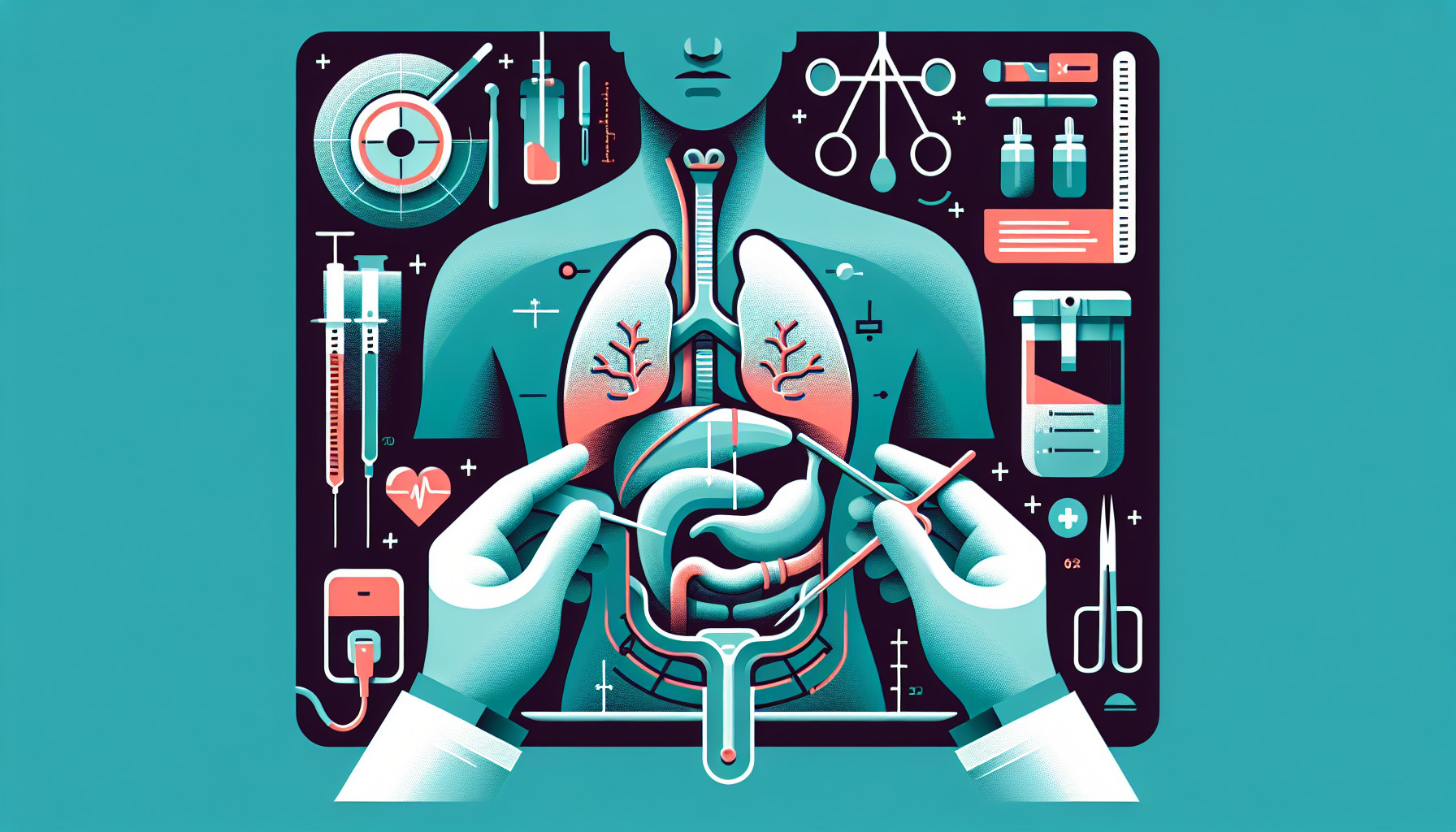Our Summary
This research article is about the different ways to monitor the health of a transplanted pancreas. The authors looked at both traditional methods and newer techniques that look at the body’s immune response. They found that certain antibodies, which are immune proteins, can indicate when type 1 diabetes, a disease where the body can’t regulate blood sugar, might come back after a pancreas transplant. They also found that a certain type of immune cell, called T cells, can potentially destroy the cells in the pancreas that produce insulin, the hormone that helps regulate blood sugar. This research might help develop new treatments for type 1 diabetes and for preventing the disease from coming back after a pancreas transplant.
FAQs
- What different methods did the researchers use to monitor the health of a transplanted pancreas?
- How can antibodies indicate the potential recurrence of type 1 diabetes post-pancreas transplant?
- How might this research contribute to the development of new treatments for type 1 diabetes?
Doctor’s Tip
One helpful tip a doctor might tell a patient about pancreas transplant is to closely monitor their blood sugar levels and overall health after the transplant. Regular check-ups, blood tests, and communication with their healthcare team are important to ensure the success of the transplant and to detect any potential issues early on. It is also important for the patient to follow their medication regimen and lifestyle recommendations to support the health of their transplanted pancreas.
Suitable For
Patients who are typically recommended for a pancreas transplant include those with type 1 diabetes who have severe complications such as:
- Unstable blood sugar levels despite intensive insulin therapy
- Hypoglycemia unawareness (inability to recognize when blood sugar levels are low)
- Severe kidney complications due to diabetes (diabetic nephropathy)
- Severe neuropathy (nerve damage) or retinopathy (eye damage) due to diabetes
Additionally, patients who have undergone a kidney transplant and are still experiencing complications related to diabetes may also be recommended for a pancreas transplant. It is important for patients to be evaluated by a transplant team to determine if they are suitable candidates for a pancreas transplant and to discuss the risks and benefits of the procedure.
Timeline
Before a pancreas transplant:
- Patient is diagnosed with type 1 diabetes and experiences difficulties in regulating blood sugar levels.
- Patient undergoes various treatments such as insulin therapy, diet and exercise management, and blood sugar monitoring.
- As the disease progresses, patient may develop complications such as kidney failure, nerve damage, and vision problems.
- Patient is evaluated for a pancreas transplant as a potential treatment option.
After a pancreas transplant:
- Patient undergoes the surgery to receive a new pancreas, which involves a hospital stay and recovery period.
- Patient is closely monitored for signs of rejection or complications following the transplant.
- Patient undergoes immunosuppressive therapy to prevent the body from rejecting the new organ.
- Patient experiences improved blood sugar control and a reduced need for insulin therapy.
- Patient undergoes regular check-ups and tests to monitor the health of the transplanted pancreas and overall well-being.
- Patient may need to make lifestyle changes and adhere to a strict medication regimen to maintain the success of the transplant.
- Patient may experience improved quality of life and reduced risk of diabetes-related complications.
What to Ask Your Doctor
- How often do I need to come in for follow-up appointments after the transplant?
- What tests will be done to monitor the health of my transplanted pancreas?
- What symptoms should I watch out for that might indicate rejection or other issues with the transplant?
- Are there any lifestyle changes I need to make to ensure the success of the transplant?
- What medications will I need to take to prevent rejection of the transplanted pancreas?
- Are there any potential long-term complications I should be aware of?
- How will the transplant affect my overall health and well-being?
- Are there any support groups or resources available for individuals who have undergone a pancreas transplant?
- What are the chances of the type 1 diabetes coming back after the transplant, and what can be done to prevent it?
- Are there any new research developments or treatments on the horizon that may benefit me as a pancreas transplant recipient?
Reference
Authors: Burke GW 3rd, Chen LJ, Ciancio G, Pugliese A. Journal: Curr Opin Organ Transplant. 2016 Aug;21(4):412-8. doi: 10.1097/MOT.0000000000000333. PMID: 27348473
